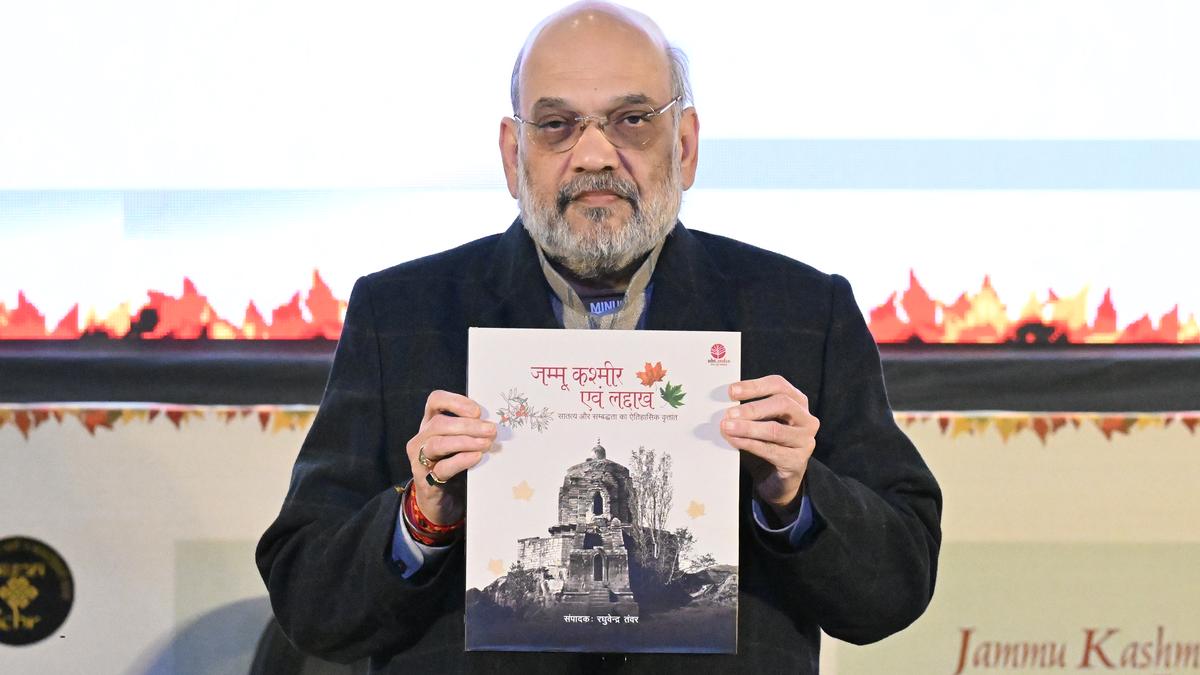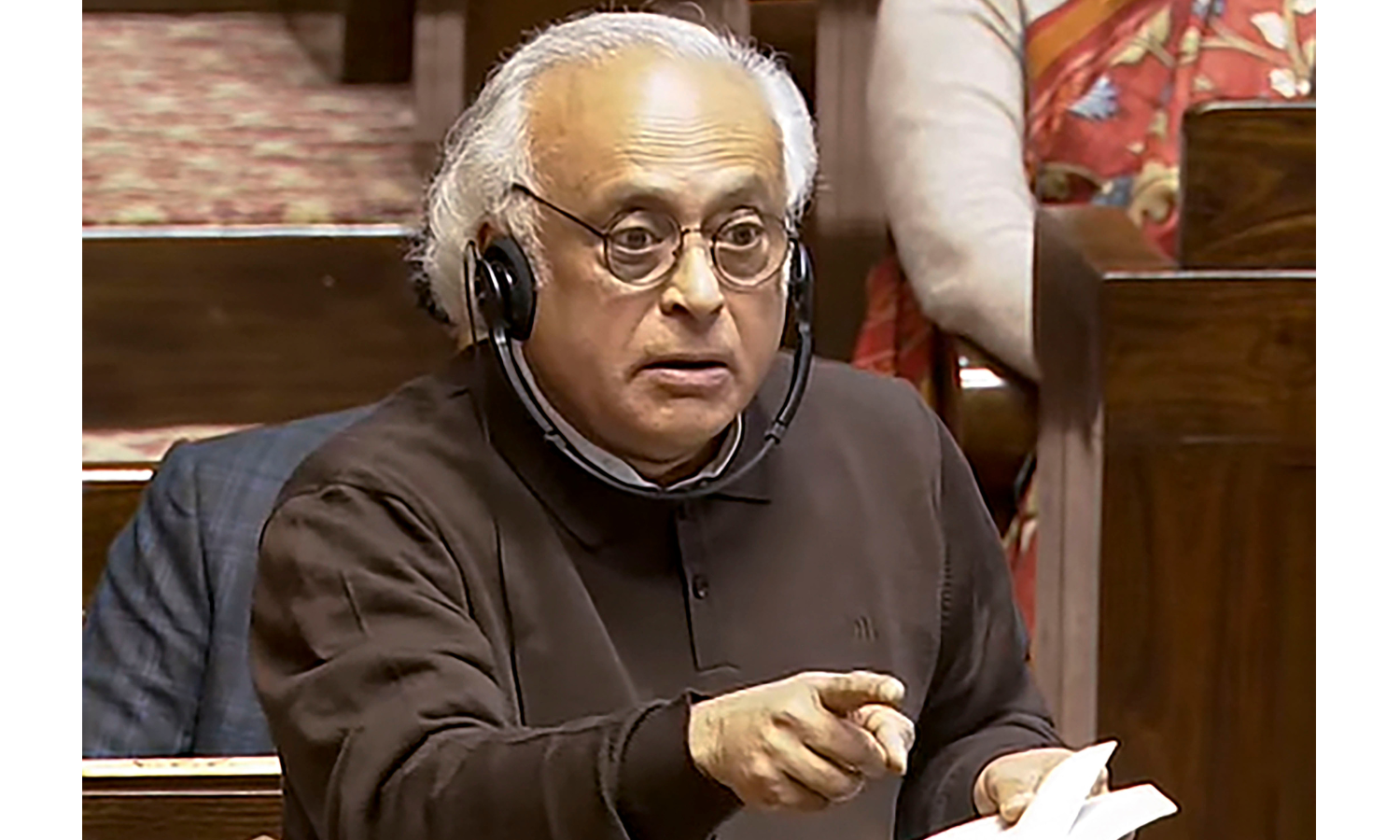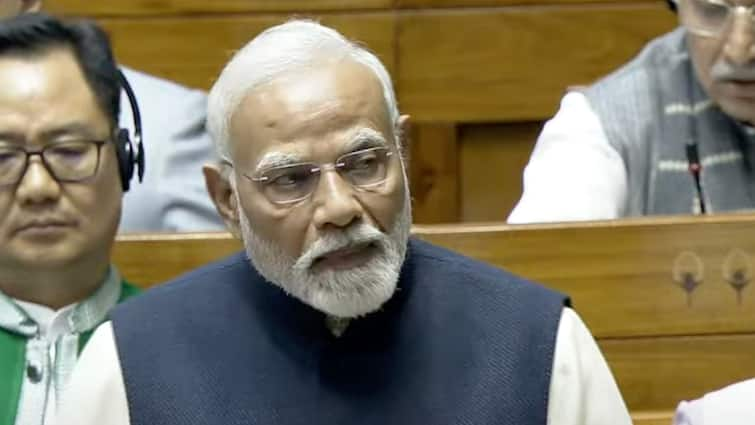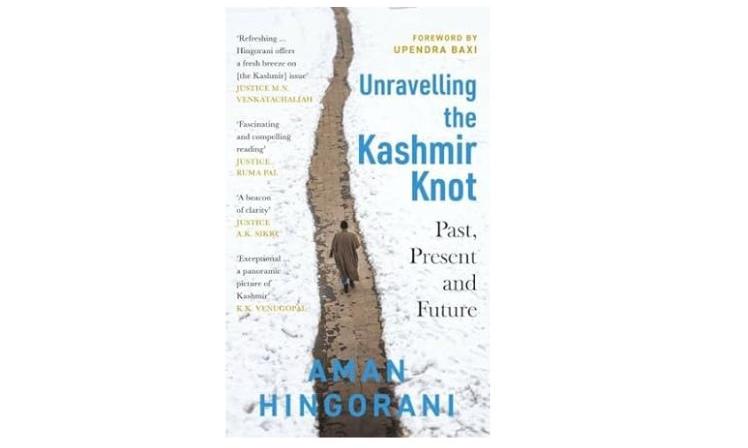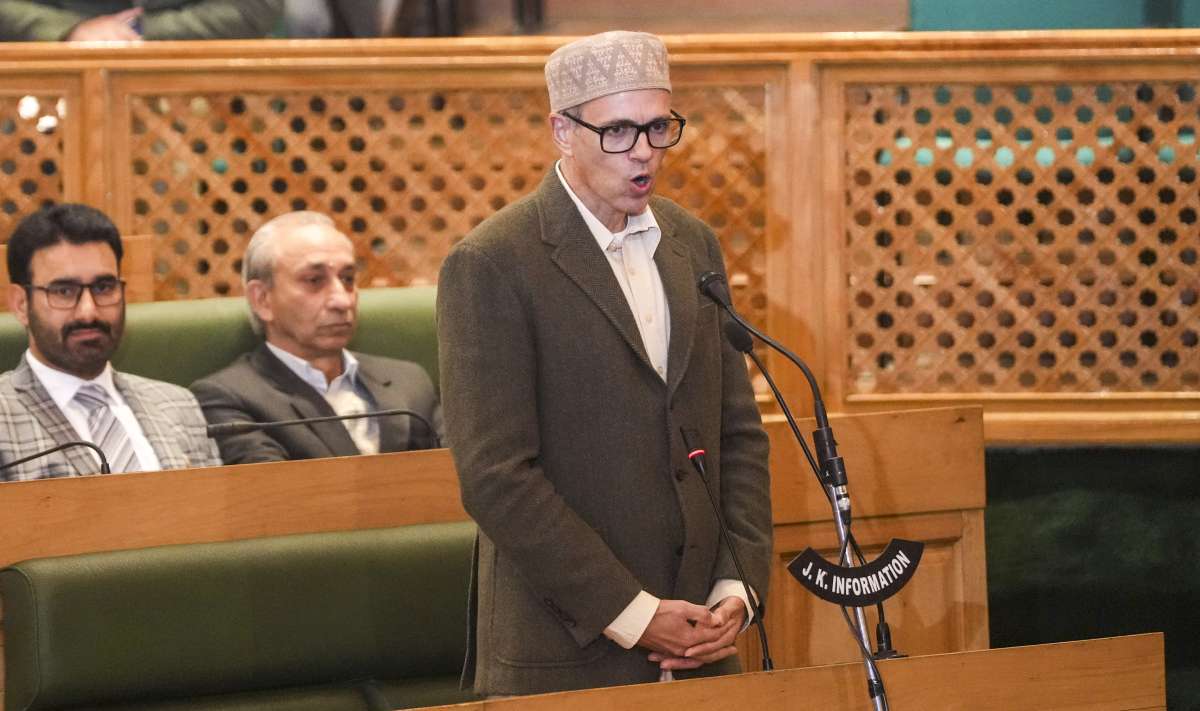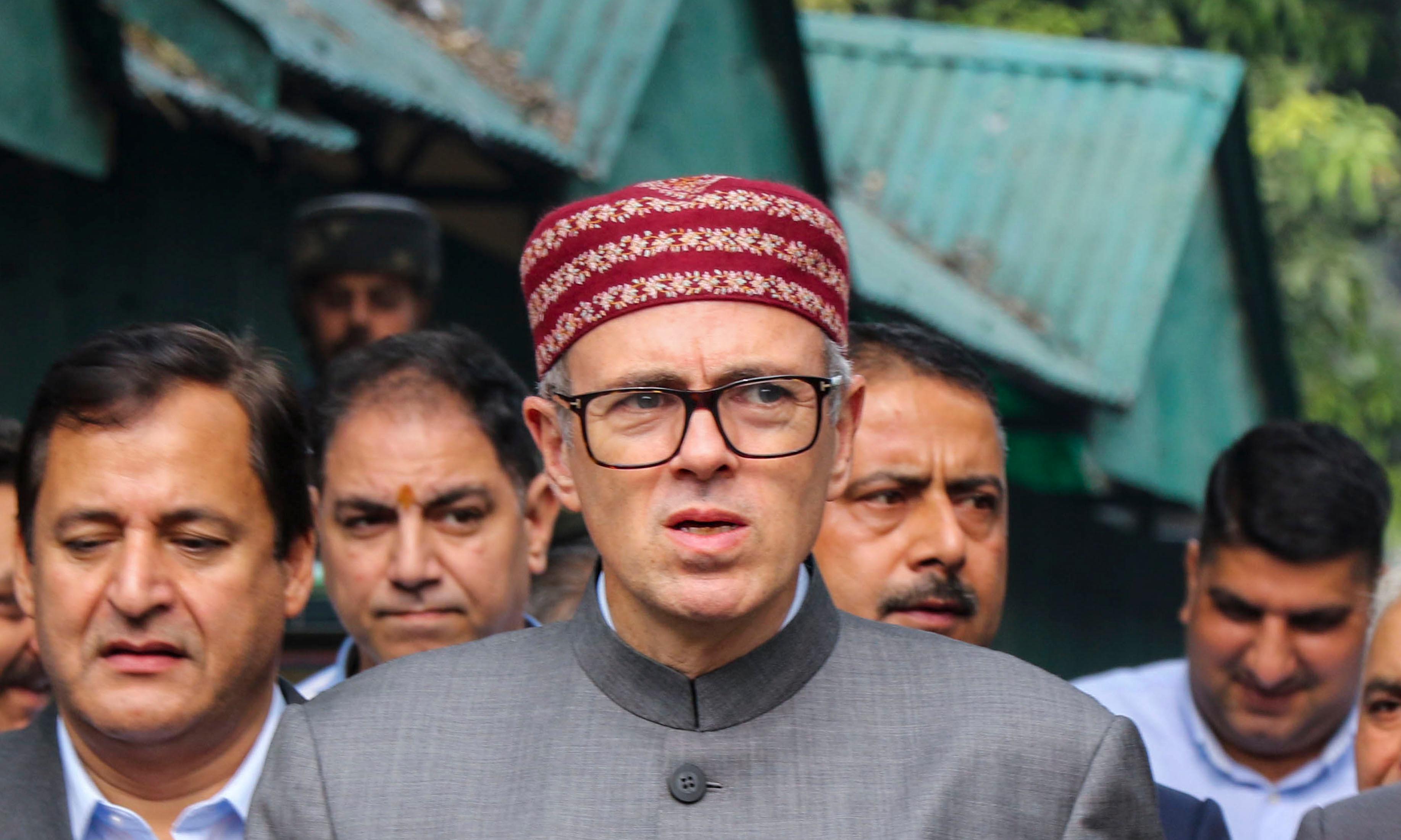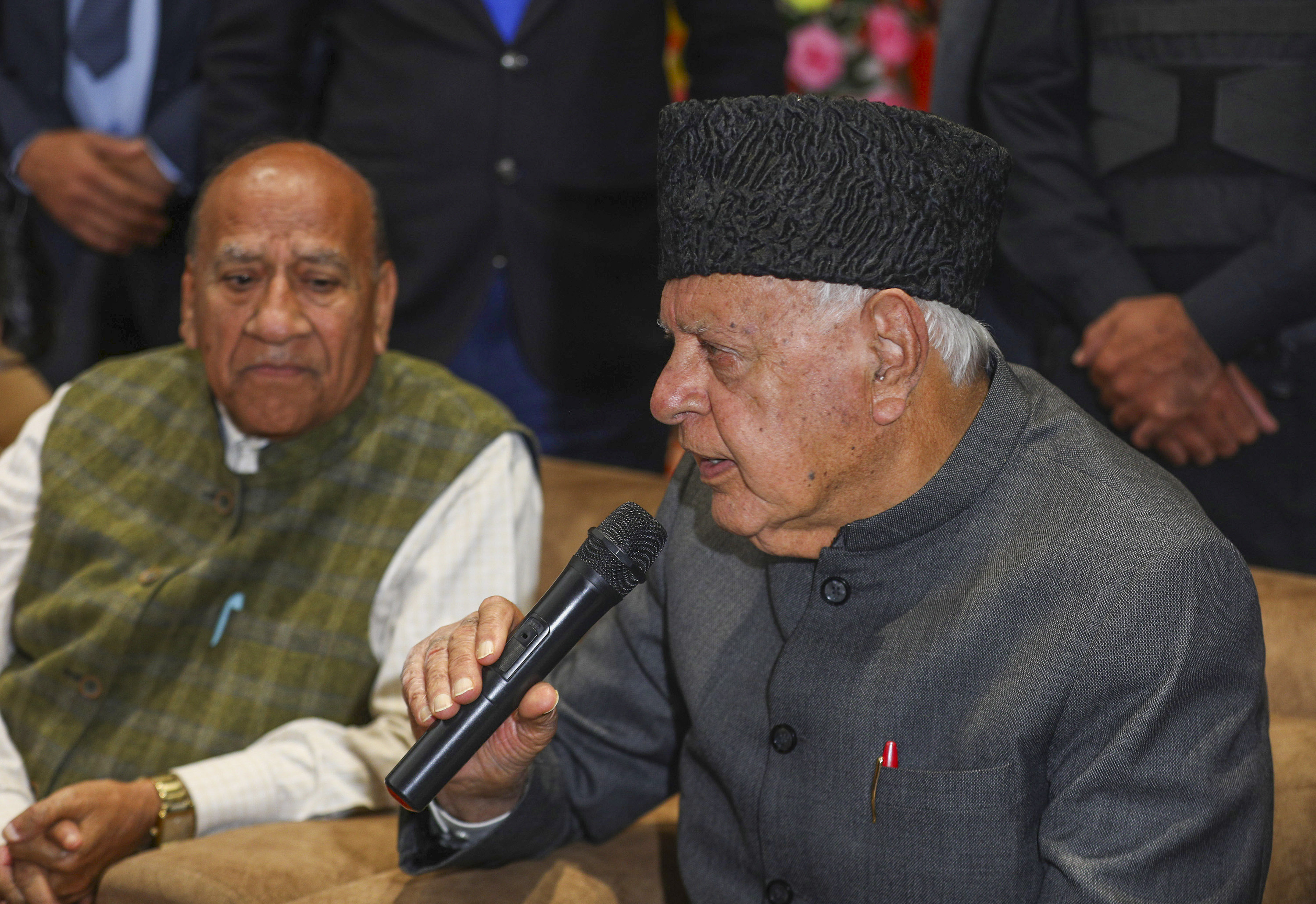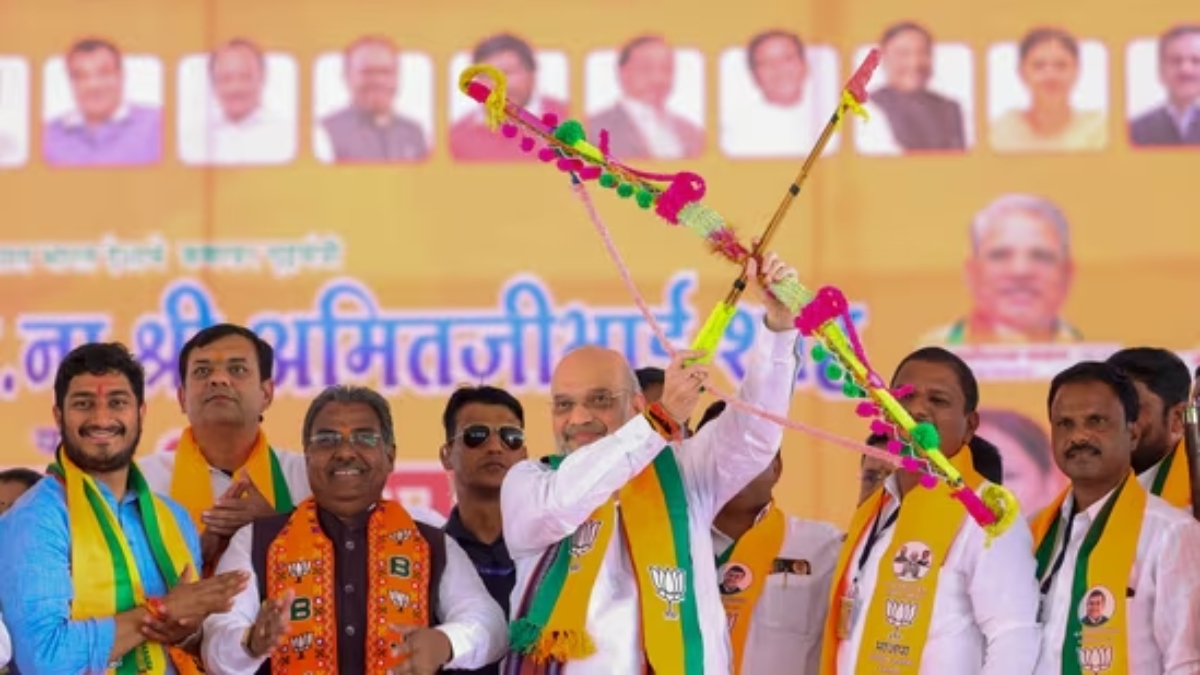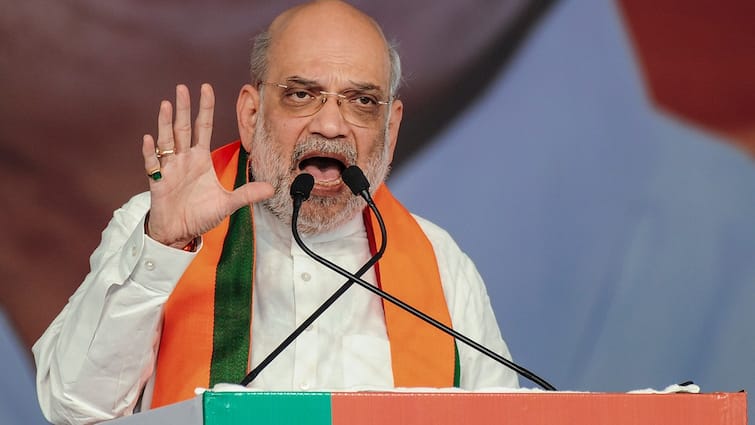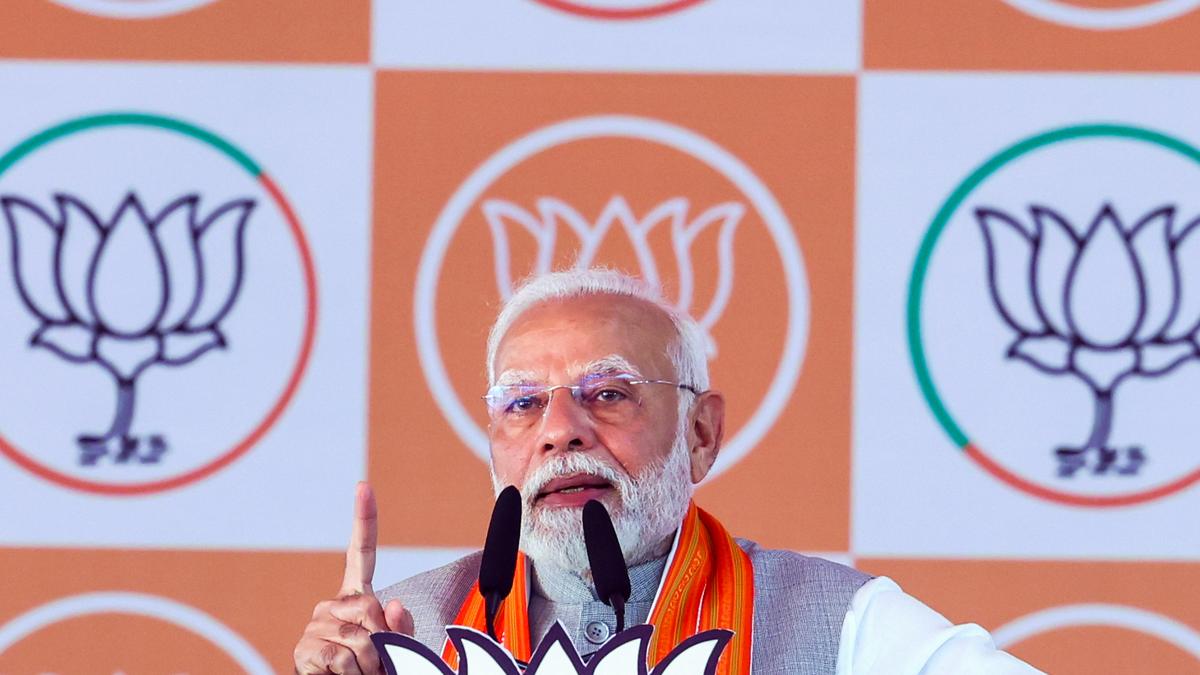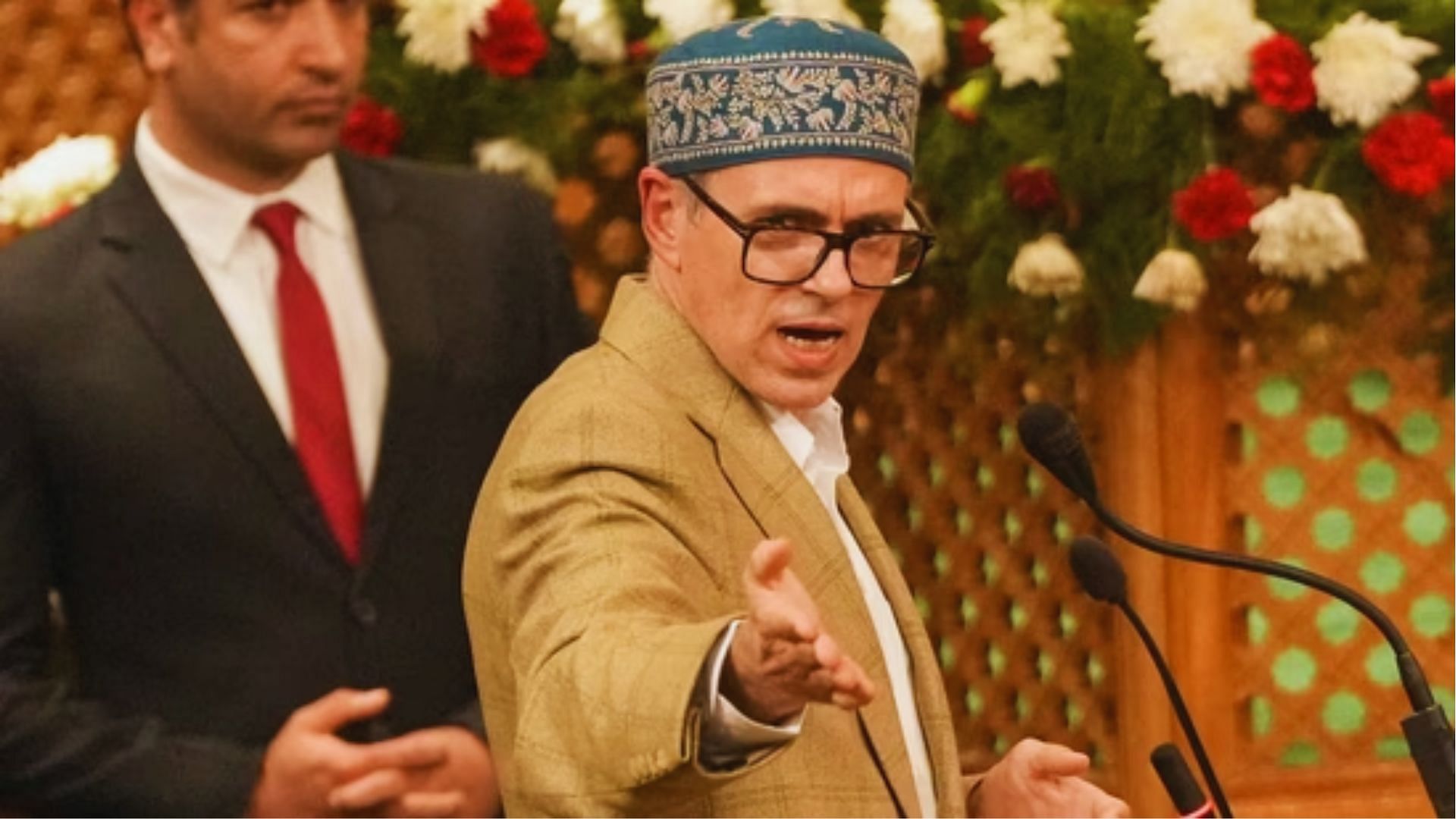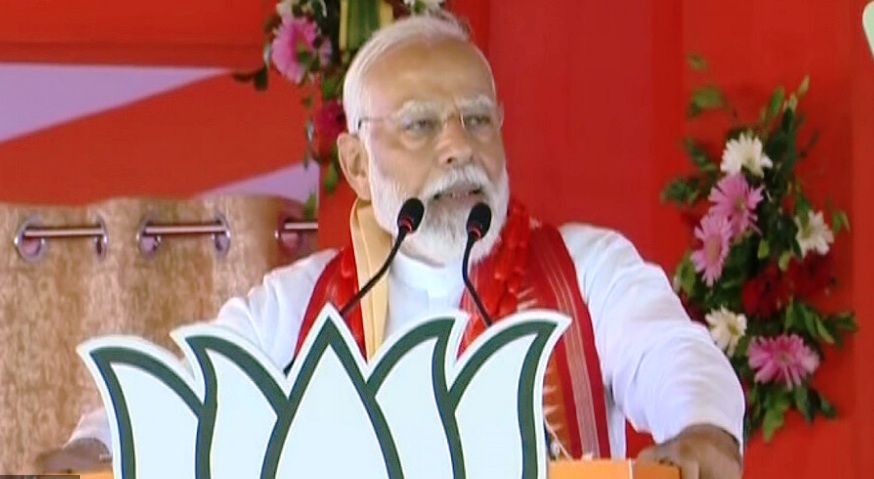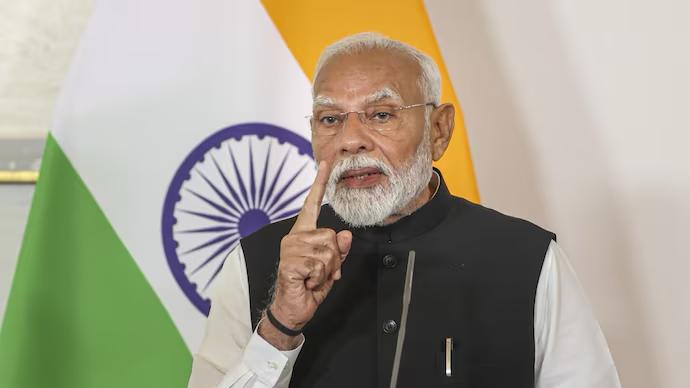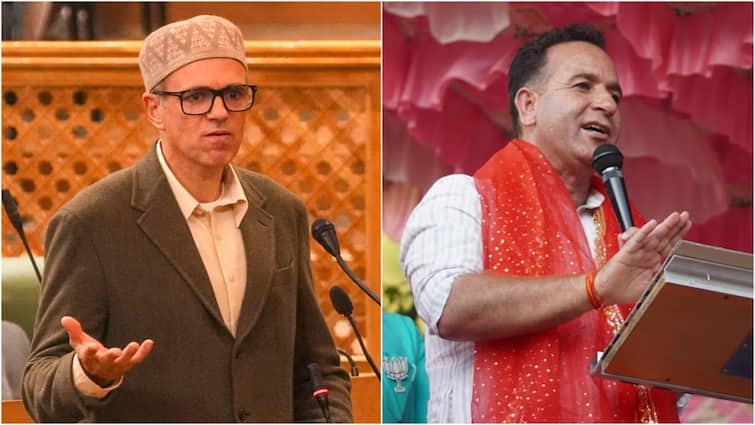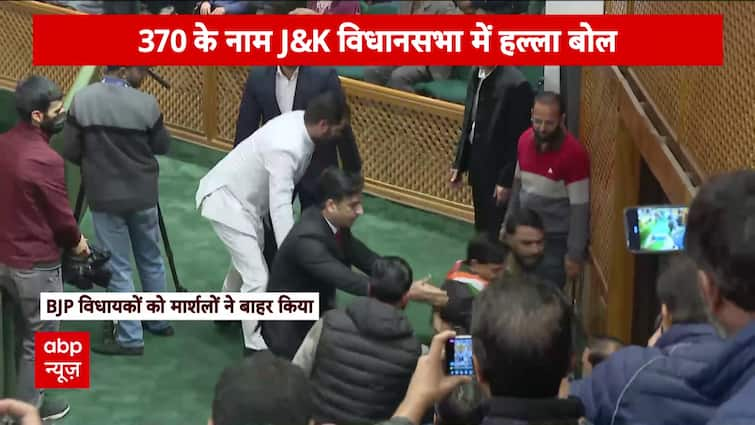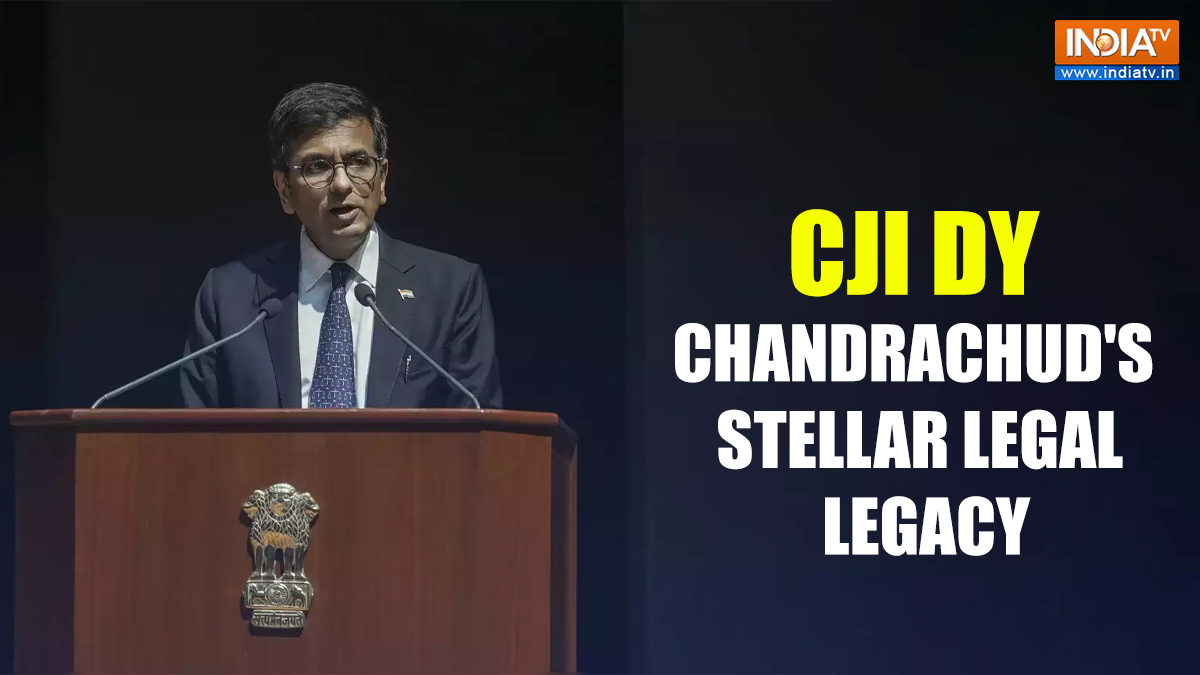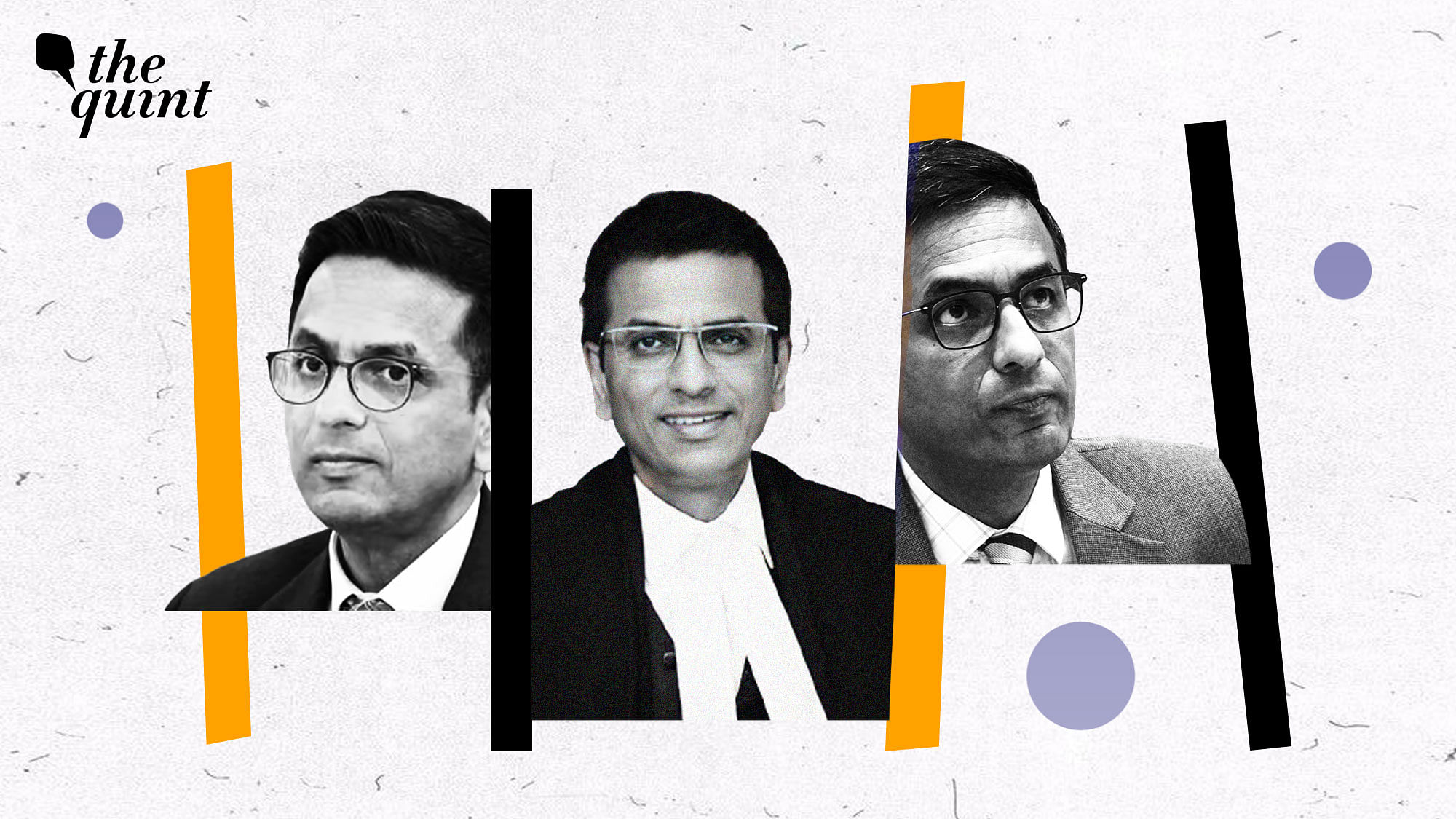People’s voice and Kashmir’s future
The HinduThe all-party conference on Jammu and Kashmir revealed the failure of the strategy crafted by the Government of India. It said: “Notwithstanding anything contained in the Constitution, no Act of Parliament in respect of Religion or social practices of the Mizos, Mizo customary law or procedure, Administration of civil and criminal justice involving decisions according to Mizo customary law, Ownership and transfer of land, shall apply to the State of Mizoram unless the Legislative Assembly of Mizoram by a resolution so decides.” On February 20, 1987, the 53rd Constitution Amendment came into force inserting Article 371G which reads thus: “Notwithstanding anything in this Constitution, no Act of Parliament in respect of Religious or social practices of the Mizos, Mizo customary law and procedure, Administration of civil and criminal justice involving decisions according to Mizo customary law, Ownership and transfer of land, shall apply to the State of Mizoram unless the Legislative Assembly of Mizoram by a resolution so decides.” The two are identically worded because Article 371G gives legal force to an accord between the Union and the MNF. Article 370 made Kashmir’s Constituent Assembly the sole authority to accord consent to any addition to the Centre’s power and to further extension to Kashmir of India’s Constitution. Article 370 enabled the State government to accord its concurrence only subject to J&K’s Constituent Assembly’s concurrence. On July 9, 1953 Maulana Azad offered to Sheikh Abdullah that the Government of India “is willing to declare that the special position given to Kashmir will be made permanent without any conditions”.
History of this topic

Removal of Article 370 fulfilled ‘one country-one constitution’ resolution: Dharampal Singh
Hindustan Times
Congress’s red Constitution books are blank, shows hatred towards Ambedkar: Modi
Hindustan Times
Discussions over Article 370, statehood mark stormy final day of J&K assembly
Hindustan Times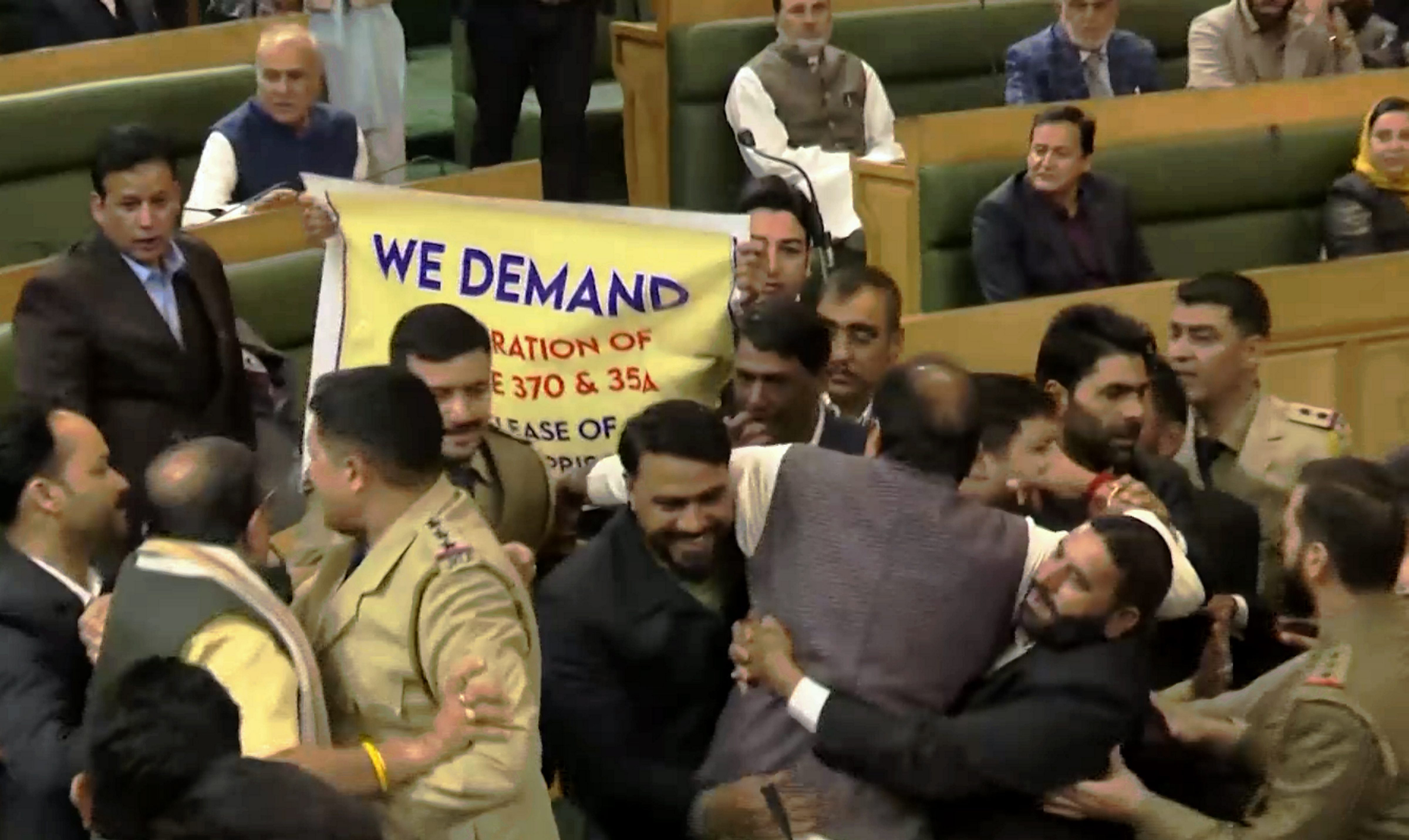
DC Edit | Focus on J&K statehood, not 370
Deccan Chronicle
Jammu and Kashmir assembly move on 370, 35A signals intent to rekindle terror: Yogi
Hindustan Times)
A tale of many resolutions: How Article 370 has become bone of contention in Jammu and Kashmir Assembly
Firstpost)
Watch | Ruckus in J&K Assembly, some MLAs marshalled out after clash over Article 370
Firstpost
BJP fumes over Jammu and Kashmir assembly ruckus, Smriti Irani sends strong 'Article 370' message to INDIA bloc
Hindustan Times
Ruckus in J&K assembly as Engineer Rashid's brother displays Article 370 banner
Hindustan Times
Omar Abdullah dismisses PDP’s assembly resolution seeking restoration of Article 370 – ‘only for cameras’
Live Mint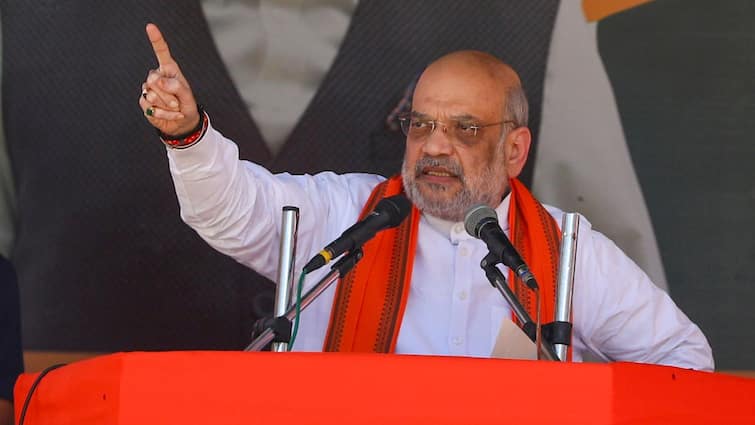
‘No Place For Article 370 In India’s Constitution Anymore’: Shah In J-K Slams Congress, NC For Aiming Revival
ABP News
‘PoK residents should join India’: Rajnath Singh at J&K Assembly election rally
Live Mint
Article 370 now history, will never come back: Amit Shah
Hindustan Times
J&K peaceful, no one wants Article 370 back: Minister G Kishan Reddy
New Indian Express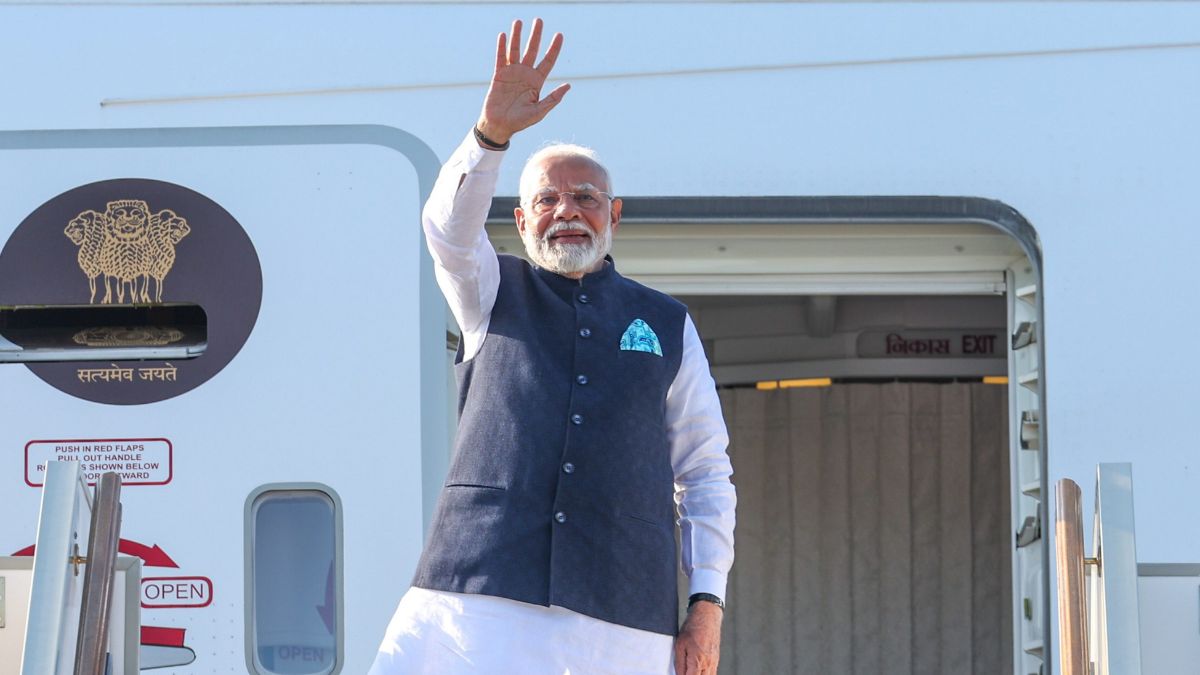)
Article 370 to triple talaq & new criminal code: Top 10 policy actions of Modi govt since 2014
Firstpost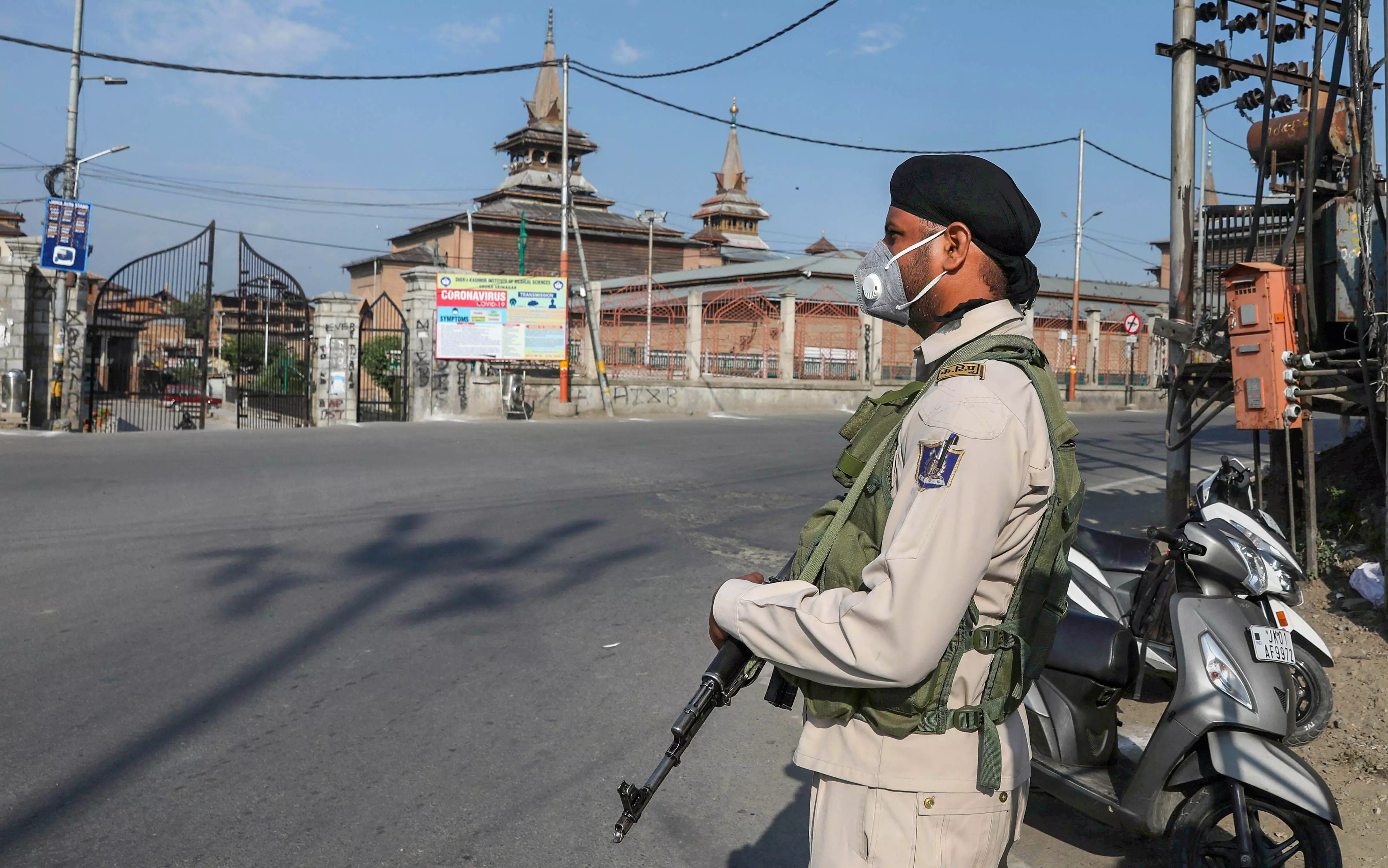
Syed Ata Hasnain | Art 370 move 5 years ago a game-changer for India
Deccan Chronicle
Five Years of Article 370 Abrogation: A Look at PM Modi’s Historic Move
News 18
Article 370 abrogation 5th anniversary: BJP to hold rally in Jammu-Kashmir to celebrate, Opposition calls it ‘black day’
Live Mint
Statehood, elections soon, says PM in J&K
Hindustan Times
In Kashmir seats, friends turn foes
Hindustan Times
Art 370 abrogation emerges as main poll plank in J&K
New Indian Express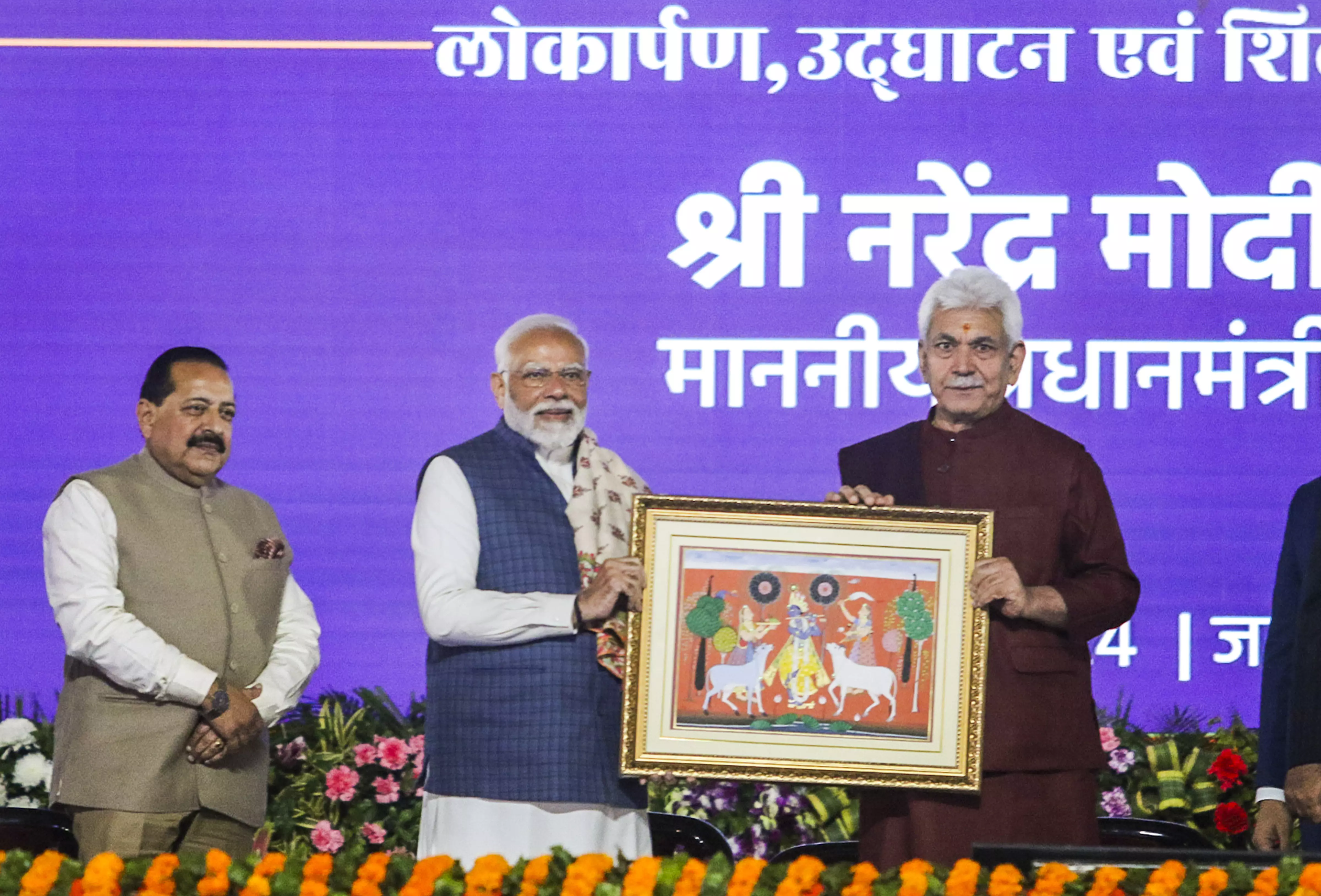
Article 370 was biggest hurdle in JK's development, says PM Modi
Deccan Chronicle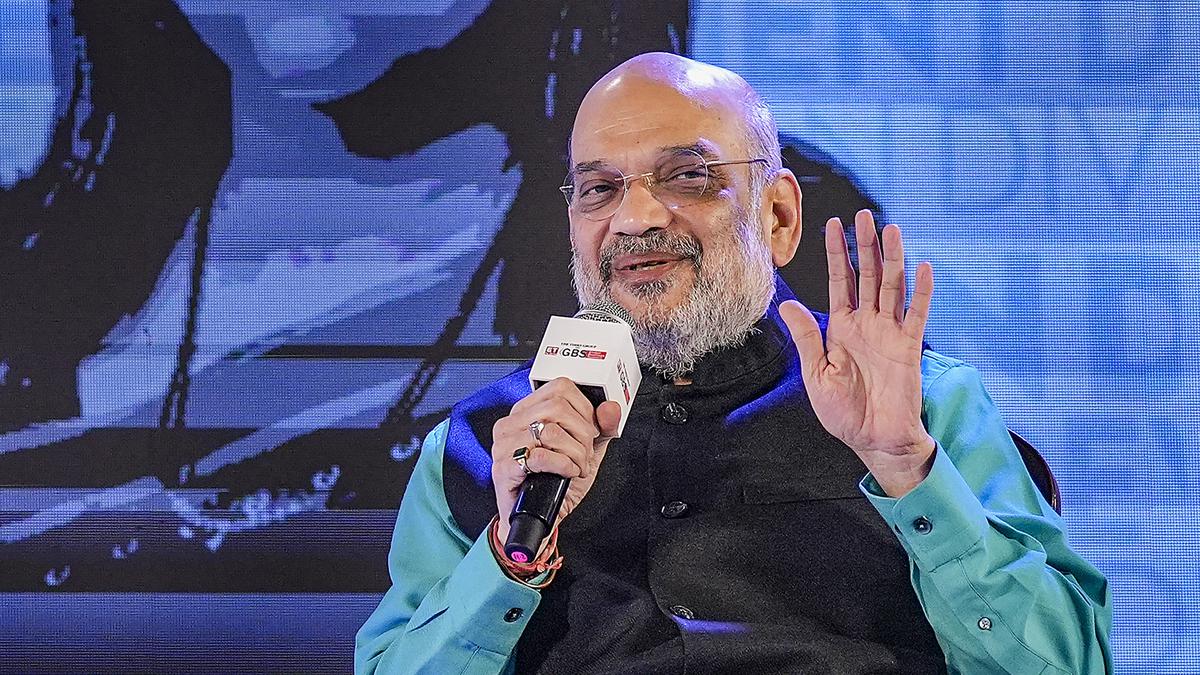
People will bless BJP with 370 LS seats as it abrogated Article 370: Amit Shah
The Hindu
Jammu and Kashmir 2023: SC nod to Article 370 abrogation, key G20 meet in valley
Hindustan Times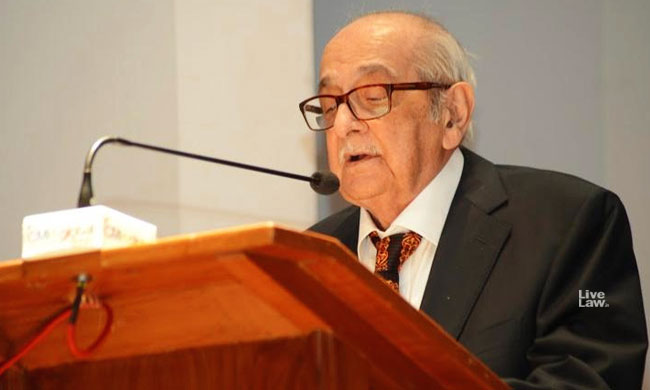
Article 370 Judgment Constitutionally Flawed, Bad In Law : Fali S Nariman
Live Law
SC imprimatur on J&K will haunt other states
Hindustan Times
Parsa Venkateshwar Rao Jr | SC's Art. 370 ruling has left key questions unanswered
Deccan Chronicle
The future of J&K, as imagined by the SC
Hindustan Times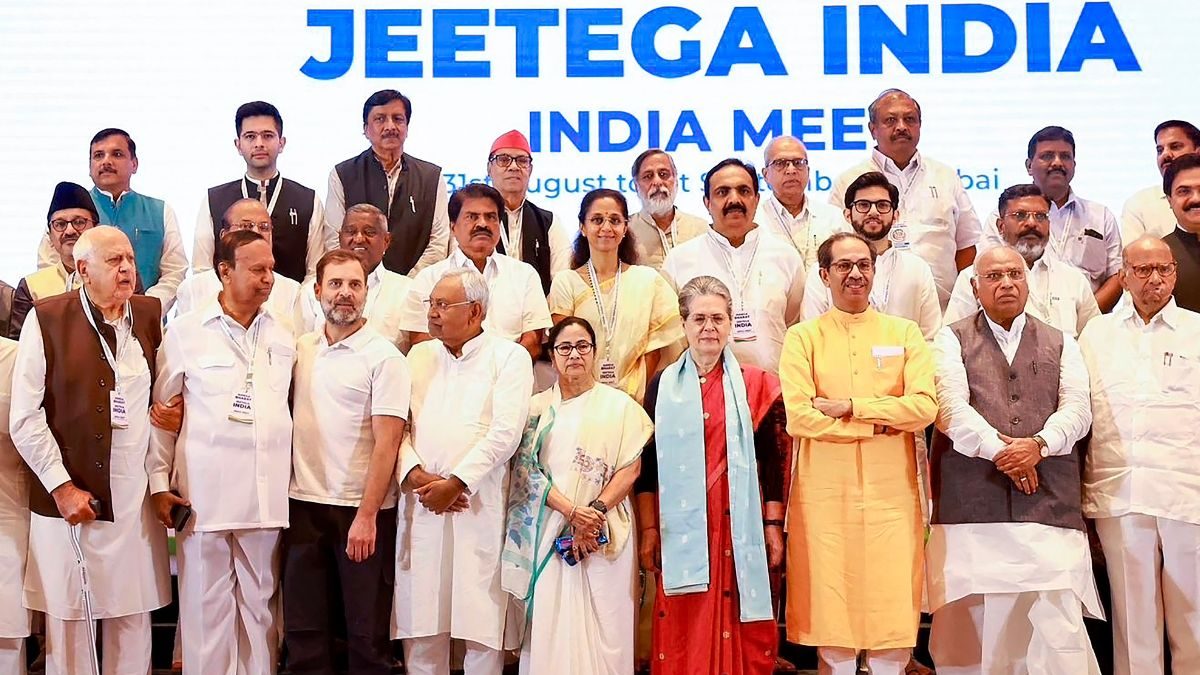
Article 370 Verdict: Why Opposition Needs to Shed Hypocrisy, Articulate Clear Stand on Kashmir
News 18
India rejects OIC remark on Article 370 verdict: ’Ill-informed & ill-intended’
Live Mint
What removing Kashmir’s special status means for the region’s future
The Independent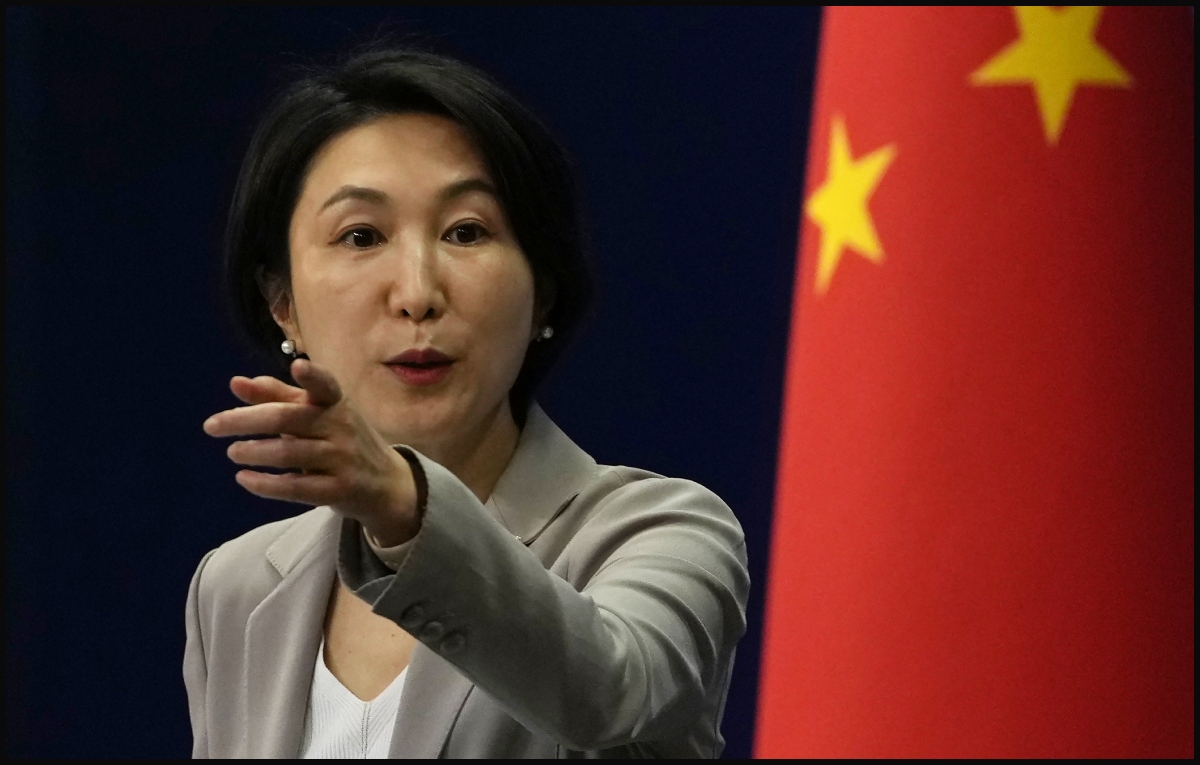
Supreme Court's decision on Article 370 in J-K: Here is what China said on the verdict
India TV News
Supreme Court verdict on Article 370 abrogation historic, upholds sovereignty and integrity of India, writes PM Modi
Hindustan Times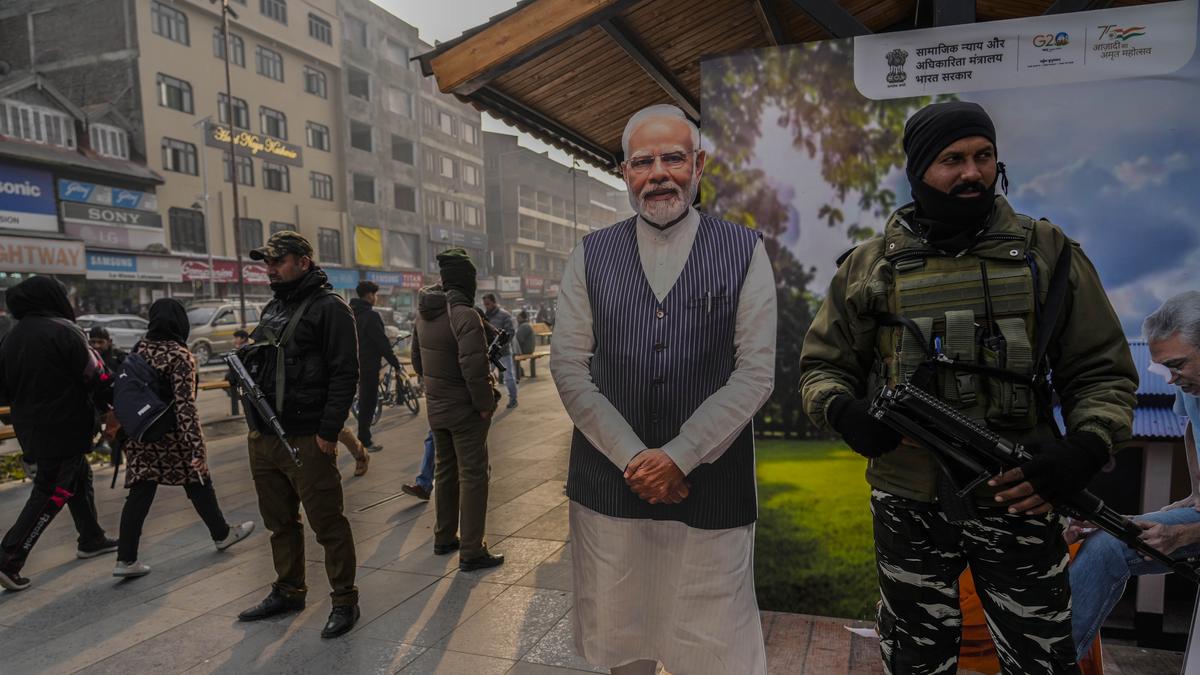
PM Modi writes: ‘SC verdict on Article 370 has strengthened the spirit of Ek Bharat, Shreshtha Bharat’
The Hindu
SC ignored people's voice in Kashmir, says activist
Deccan Chronicle
BJP, YSRC welcome SC verdict on article 370
Deccan Chronicle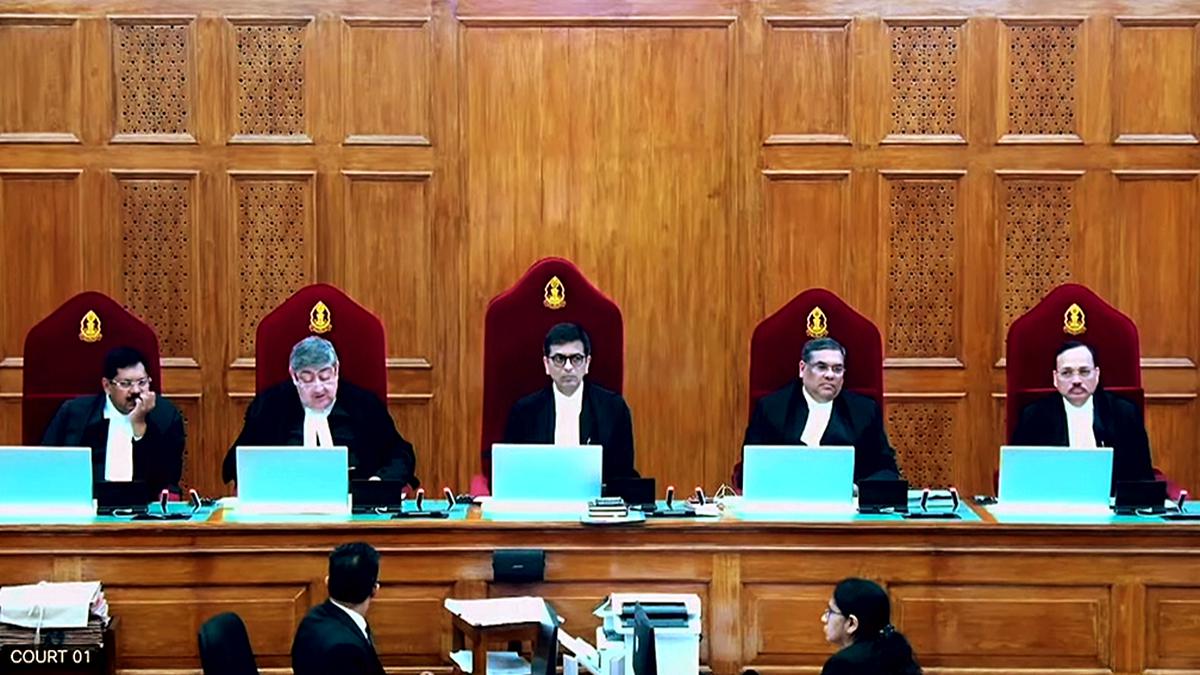
Giving Article 370 permanent status will undo over 70 years of work to fully integrate J&K with the Union, says SC
The Hindu
For Kashmir, life after Article 370
Hindustan Times
RSS welcomes SC decision of upholding abrogation of Article 370
The Hindu
‘I can’t explain to them': Shah slams Cong on Supreme Court's Article 370 verdict
Hindustan TimesUpset with SC verdict, J&K parties pledge to ‘continue struggle for Article 370’
The Hindu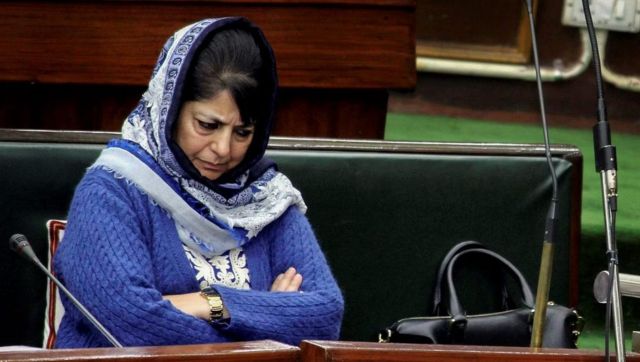)
'Nothing less than death sentence': J&K ex-CM Mehbooba Mufti on SC verdict upholding abrogation of Article 370
Firstpost
'UTs of Mumbai...': How Asaduddin Owaisi, J&K leaders reacted to SC verdict
Hindustan Times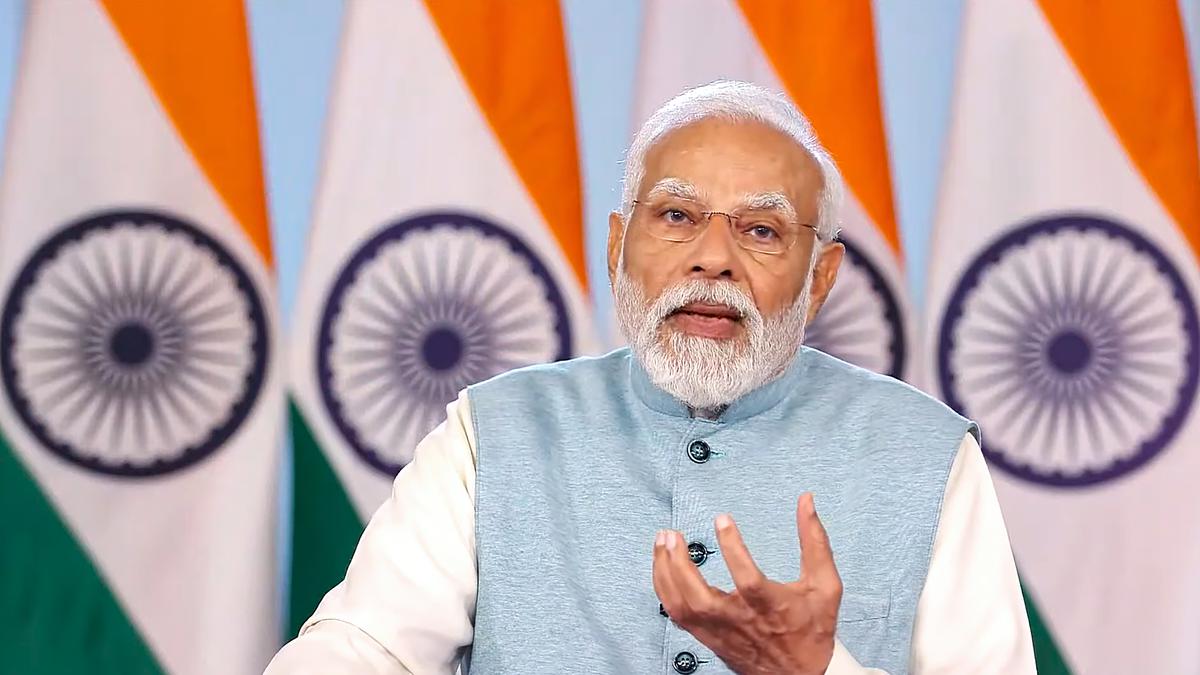
Resounding declaration of hope: PM Narendra Modi hails Supreme Court verdict upholding abrogation of Article 370
The Hindu
Article 370 Verdict is Historic, Say Modi, Shah
Deccan Chronicle
Supreme Court holds abrogation of Article 370 ‘valid’: Key takeaways
Hindustan Times
Article 370: India’s Supreme Court says decision to remove Kashmir’s special status constitutionally valid
The Independent
President had power to revoke Article 370, prior Jammu and Kashmir assembly nod not required: SC
Hindustan Times
PM Modi reacts to Supreme Court verdict on Article 370 abrogation: ‘Historic, beacon of hope…’
Hindustan Times
Article 370 abrogation in J-K constitutionally valid: Supreme Court backs Centre in landmark verdict
Hindustan TimesDiscover Related
